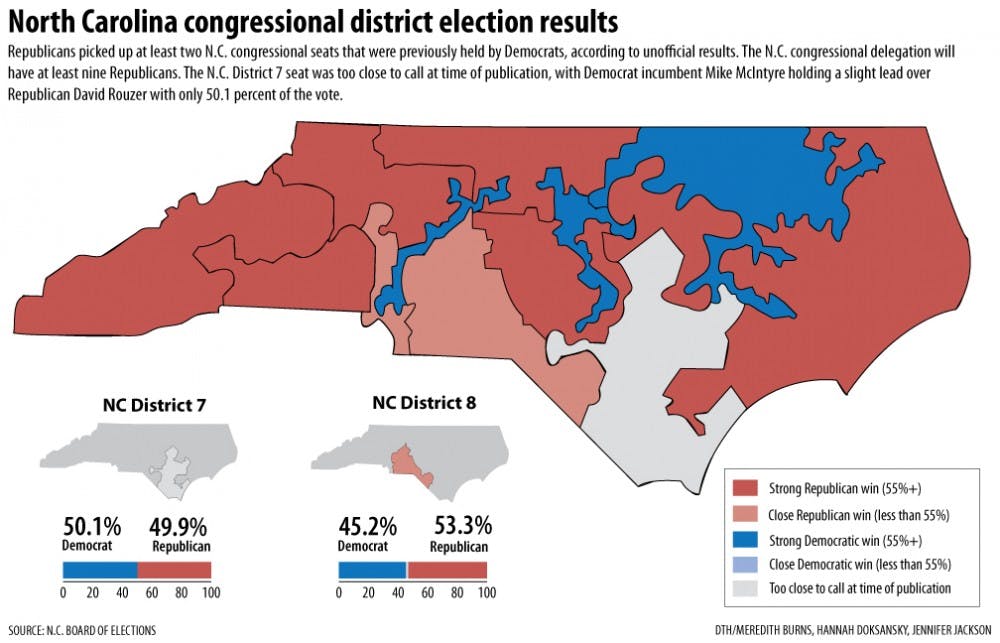RALEIGH — North Carolina Republican Party officials and congressional candidates celebrated significant victories Tuesday night that will affect the balance of power in Washington, D.C.
The rightward shift in the N.C. congressional delegation aided Republicans in retaining their overall control of the U.S. House of Representatives.
Republicans picked up at least three seats previously held by Democrats in 2010, taking the eighth, 11th, and 13th districts, with the seventh district still too close to call at 12:15 a.m. today, according to unofficial results.
The new N.C. delegation will have at least nine Republicans, a stark contrast from the delegation composed of seven Democrats and six Republicans that was sent to Washington in 2010.
Wayne King, vice-chairman of the N.C. Republican Party, said the victory was proof that job creation was a principal concern for N.C. voters.
“We’ve sent businesspeople to Washington,” he said.
But Democrats and other political observers said the Republican surge in U.S. House seats comes on the heels of what they see as gerrymandered districts produced by the Republican-led N.C. General Assembly in 2011.
U.S. Reps. Heath Shuler and Brad Miller, former Democratic incumbents for districts 11 and 13, respectively, both retired after the map’s release.
“The Republican legislature drew three very garbled, very Democratic districts, and then drew 10 districts that lean strongly Republican,” Miller said.



